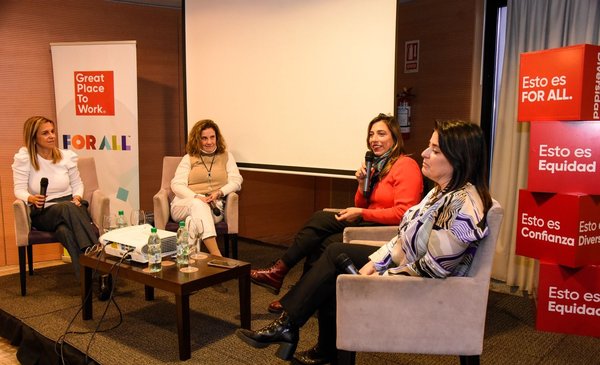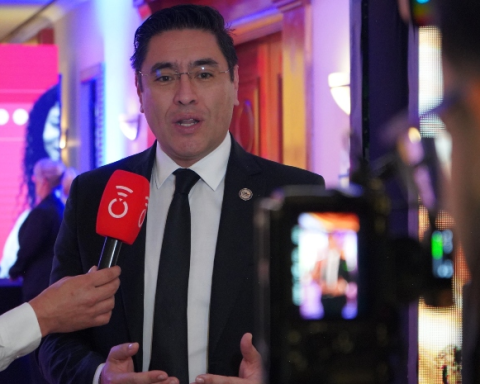“Data kills a story,” said Macarena Botta, founder of Brava and an economist by profession. women in leadership positions in companies, the results at the business level are better. “The companies that involve women generate more money and more impact,” he said. And diverse and balanced organizational cultures have 38% more innovation, which, for a world that is changing at a fast pace, is critical, she said.
Making women visible and generating diverse and equitable organizational cultures is a business opportunity, he remarked, adding: “No one is sitting at the table because of the quota or because they are a woman. If you are sitting at the table it is because you are detached”.
Botta was one of the guests of Great Place To Work (GPTW) to talk about gender equality at an event in which the main data from the ranking of the best companies to work for women were presented.
In the ranking, in which several Uruguayan companies were highlighted for their excellence in managing equity among their collaborators, it was shown that, although women are the ones who feel collective pride for the company they work for the most and are the engine of employer brands23% of them are in leadership roles, compared to 27% of menand only 2% of them hold management positions, while in the case of men the percentage increases to 4%.
“We are on a good path, but there is still a lot of cloth to be cut,” commented Fedra Feola, GPTW Country Manager for Uruguay.
The ranking, as he explained, was made with a universe of 82 organizations, companies and institutions from 13 different areas, and 10,664 employees were surveyed, of which 60% were women and 40% men.
Ines Guimaraens
“Gender equality is a business”
Andrea Medina, founding member and director of the Network of Executive Women of Uruguay (RedME), who was also part of the panel of the event, highlighted that “gender equality is a business”because organizations that have leadership based on gender equality have comparative advantages over the rest.
“Women are not only more than half of the population, but we are also more educated. Incorporating female talent that is trained and committed to the company gives a comparative advantage. The world is going towards it. Organizations that lag behind on gender equality, lag behind,” she remarked.
Although incorporating women is a good opportunity for companies, it is the collaborators who face the greatest gaps in the labor market.
Feola said that in the GPTW ranking it was possible to see that women are the ones who most value how much managers represent organizations, and who have the most empathy with them. But, although they are the ones who also value development within companies more than men, they are the ones who have the most difficulties in achieving it, in three points: salary, development and listening.
The challenges that women face are mainly focused on promotion to better positions within companies, growth and the condition of being heard; and in this sense, the GPTW Country Manager assured that women in senior management positions tend to be the ones who have the most difficulties when it comes to being heard.















